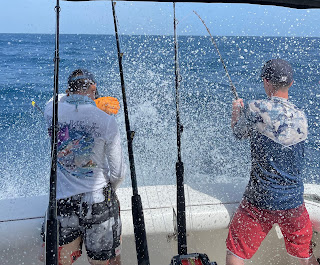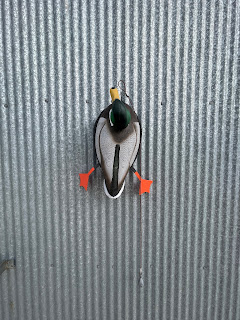Giving back
Last year, I had the opportunity to travel with my family to Guatemala for three days of sportfishing in the “Sailfish Capitol of the World,” and it truly lived up to its billing. For three days we experienced double-digit sailfish hook-ups on sailfish and dorado, fighting fish until our arms were beyond sore. It was an amazing trip and one I can’t wait to experience again someday. Guatemala and its people were truly amazing and the hospitality we experienced was beyond compare.When starting Ecotrek Outfitters, I spent some time thinking about that trip and many other experiences I’ve had over the years. I wanted to give something back to the outdoor community and the people of Guatemala and other places I’ve been fortunate to visit. As I’ve travelled, it’s become clear to me many places around the globe lack the opportunities that we enjoy in the United States. They also lack some of the fundamentals that we take for granted, like basic sanitation and clean water. One of the results of this lack of infrastructure is a large increase in single-use plastic bottles and other plastic, much of which ends up in the ocean.Plastic waste and other garbage can have drastic negative impacts on the ocean, marine animals, ecosystems and ultimately on humans and the planet.Plastic waste in the ocean poses a significant threat to marine life and coastal environments. Removing plastic debris helps clean up the seas and reduces the risk of entanglement or ingestion by marine animals. Large plastic items, such as fishing nets, can trap and harm marine species, while smaller plastic fragments, like microplastics, can be ingested by a wide range of marine organisms.Marine habitats, such as coral reefs, seagrass beds, and coastal wetlands, are vital for various marine species. Plastic pollution can directly damage these habitats, obstructing sunlight, and interfering with critical ecological processes. By removing plastic from the ocean, we can help protect and preserve these fragile environments, ensuring the health and biodiversity of marine ecosystems.Marine animals, including fish, seabirds, turtles, and marine mammals, can mistake plastic debris for food or become entangled in it. Ingesting plastic can lead to internal injuries, blockages, and malnutrition, while entanglement can cause injuries, amputations, and suffocation.
By removing plastic from the ocean, we can reduce these threats and protect vulnerable species from harm.Plastic particles, especially microplastics, are consumed by small marine organisms. As these microplastics move up the food chain, they can accumulate in higher concentrations in larger predators, including fish that humans consume. Ingesting plastic-contaminated seafood can have adverse health effects on both marine animals and humans.
By removing plastic from the ocean, we reduce the entry of plastic into the food chain and minimize potential health risks.Healthy marine ecosystems rely on a delicate balance between different species. When plastic pollution disrupts this balance, it can lead to cascading effects on entire ecosystems. For example, the decline of certain marine species due to plastic ingestion or habitat degradation can result in a proliferation of other species, leading to imbalances that affect the overall health and stability of marine ecosystems.Plastic in the ocean can indirectly contribute to climate change. As large plastic items break down into smaller pieces, they release greenhouse gases, such as methane and ethylene. Additionally, plastic pollution can alter the reflective properties of the ocean surface, impacting the Earth’s energy balance. By removing plastic, we can mitigate some of these climate change-related consequences.To give back to communities and to help contribute to bettering the outdoors that we all enjoy, we encourage every individual to reduce their use of single-use plastics. To better the environment Ecotrek Outfitters is donating a portion of each sale to 4Ocean, an organization committed to removing plastic and other garbage from the world’s oceans. We hope you’ll join us and consider buying and selling your high-quality used outdoor equipment from EcotrekOutfitters.com





Comments
Post a Comment